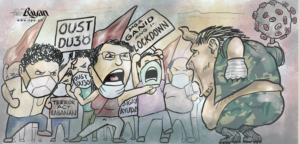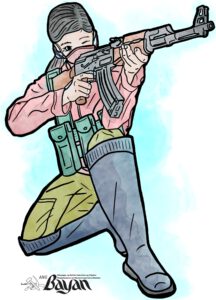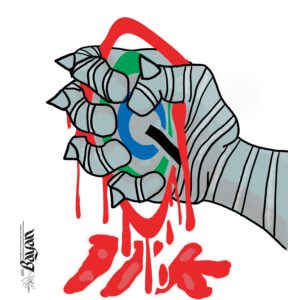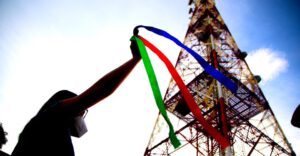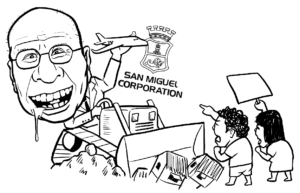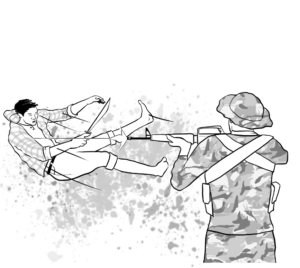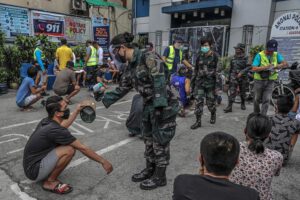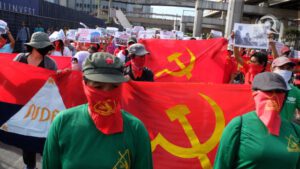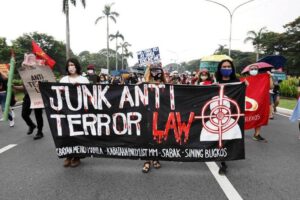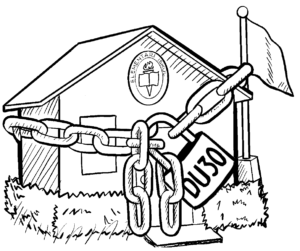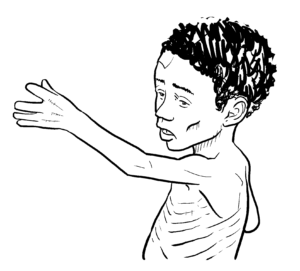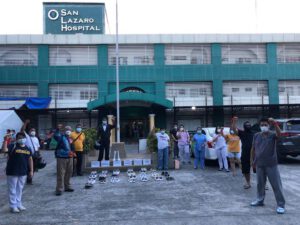Surveillance amid the pandemic


In July 8, the Inter-Agency Task Force (IATF) on Emerging Infectious Diseases allowed the opening of barbershops, parlors and salons up to 50% of their regular clientele in Metro Manila. Among the IATF’s requisites is for all costumers to use contact tracing applications like the StaySafe.Ph.
StaySafe.Ph is a phone application which registers the location wherever the user may be. The objective of this app is supposedly to provide fast and easy information to individuals if they come in contact with a Covid-19-positive individual by registering phone numbers to establishments they patronize.
The app was developed and is being ran by MultiSys Technology Corp. It was endorsed by Hermogenes Esperon of the National Security Council (NSC) and officialized by the IATF generals last April 22. The company aims to enrol half of the Philippine population. It has access to all active cellphones and can directly send messages to all through the Department of Information and Communications Technology (DICT).
Multisys Technologies Corp. was founded by David Almirol Jr. who previously worked in a US military base in Iraq. He met Esperon in 2016 and served as a consultant to the NSC in 2017. He worked on some “technical surveillance” projects for the agency. The StaySafe.Ph was said to be commissioned by the National Intelligence Coordinating Agency. PLDT holds 45% of the company since 2018.
Many technology experts have sounded alarm against StaySafe.Ph, claiming that the application could be used to spy on the people and violate their right to privacy. It collects extensive data from registered cellphones. Aside from determining the user’s location, it has permission to read and change messages and contacts, access the camera and microphone, read storage and change phone settings, among others.
The app has no declared privacy statement and it is unclear how the collected data will be used after the pandemic. It can be used by those in power during the next election. Data can be sold to interested businesses.
Critics and the political opposition fear that it will be used against them, especially under the newly-signed Anti-Terror Law. The National Investigation Bureau, which has persecuted Duterte’s critics in the guise of stopping the proliferation of fake news, will have access to the app’s data.
On June 29, the Makabayan bloc proposed that Congress investigate irregularities and privacy issues of the app. Its representatives cited the complaint lodged by then DICT official Eliseo Rio Jr. who said that the app is incapable of contact tracing. At the time it was endorsed by the IATF, the app was only capable of collecting phone numbers and determining locations. It is not integrated with the databases of the Department of Health and local agencies which are directly in charge of contact tracing.

